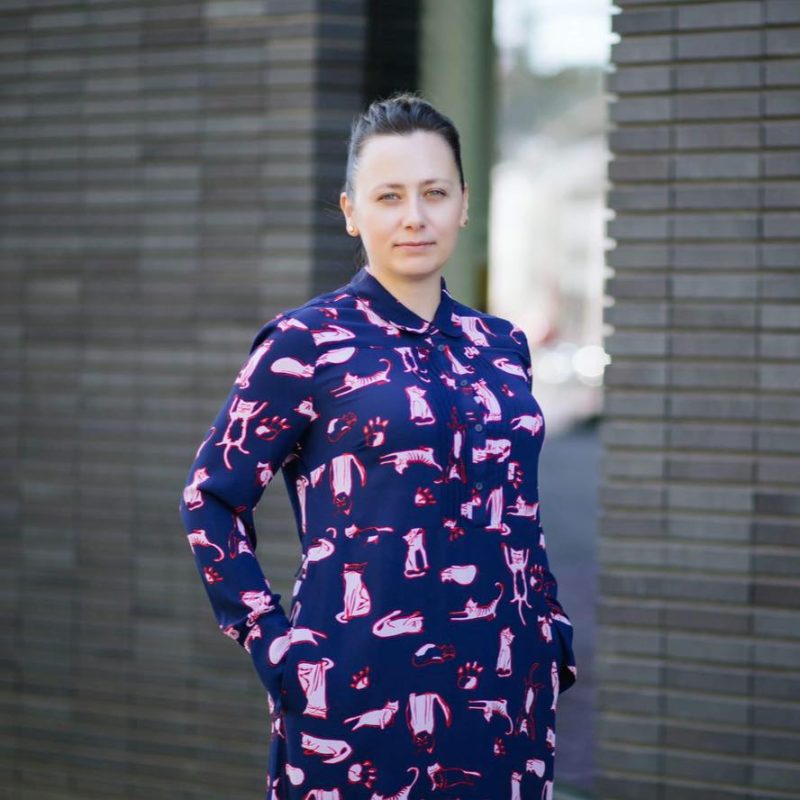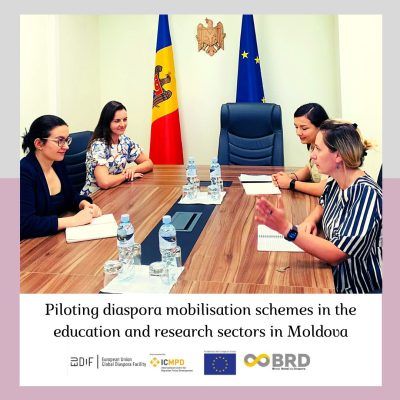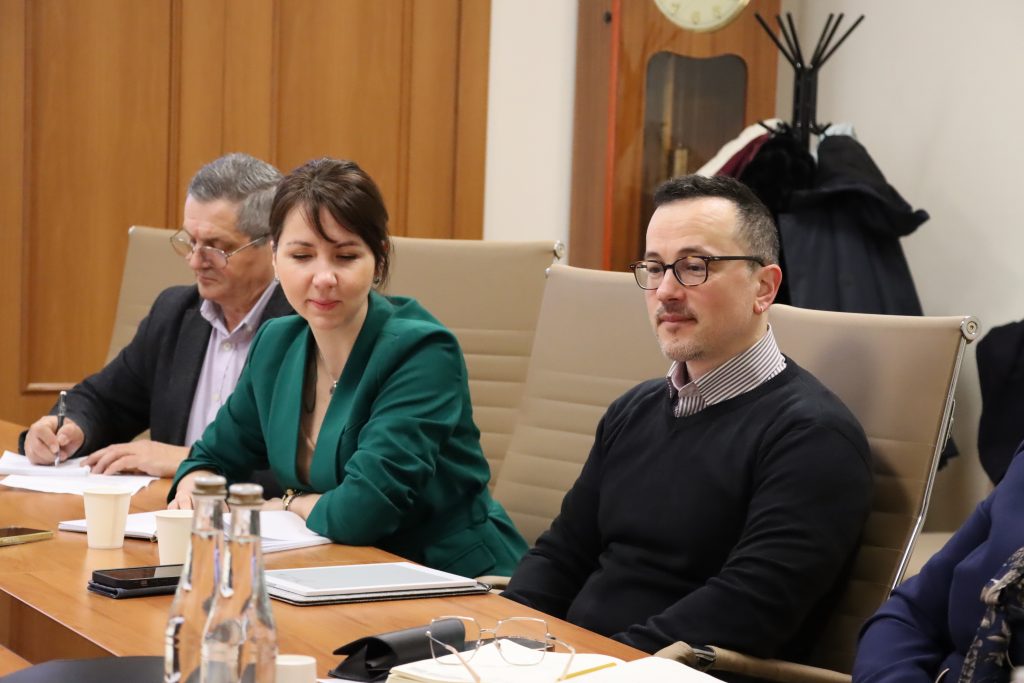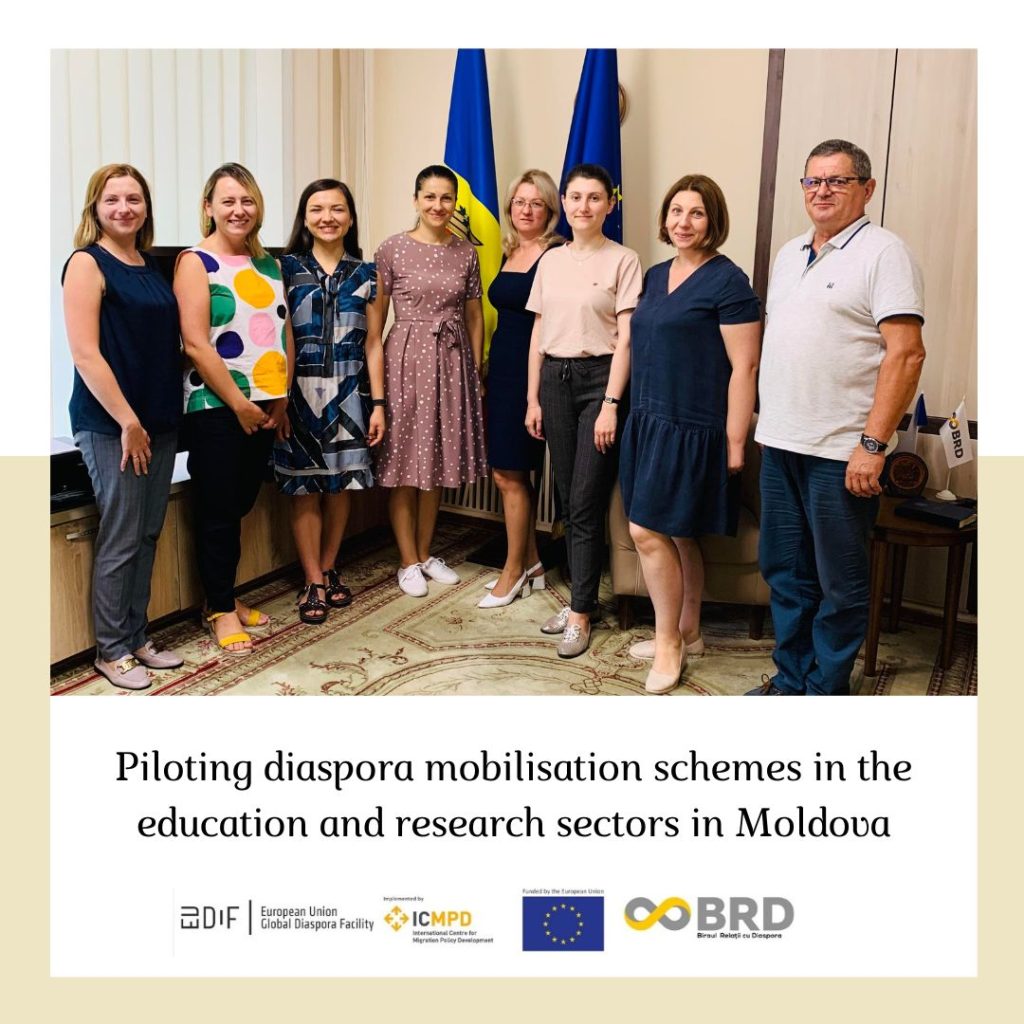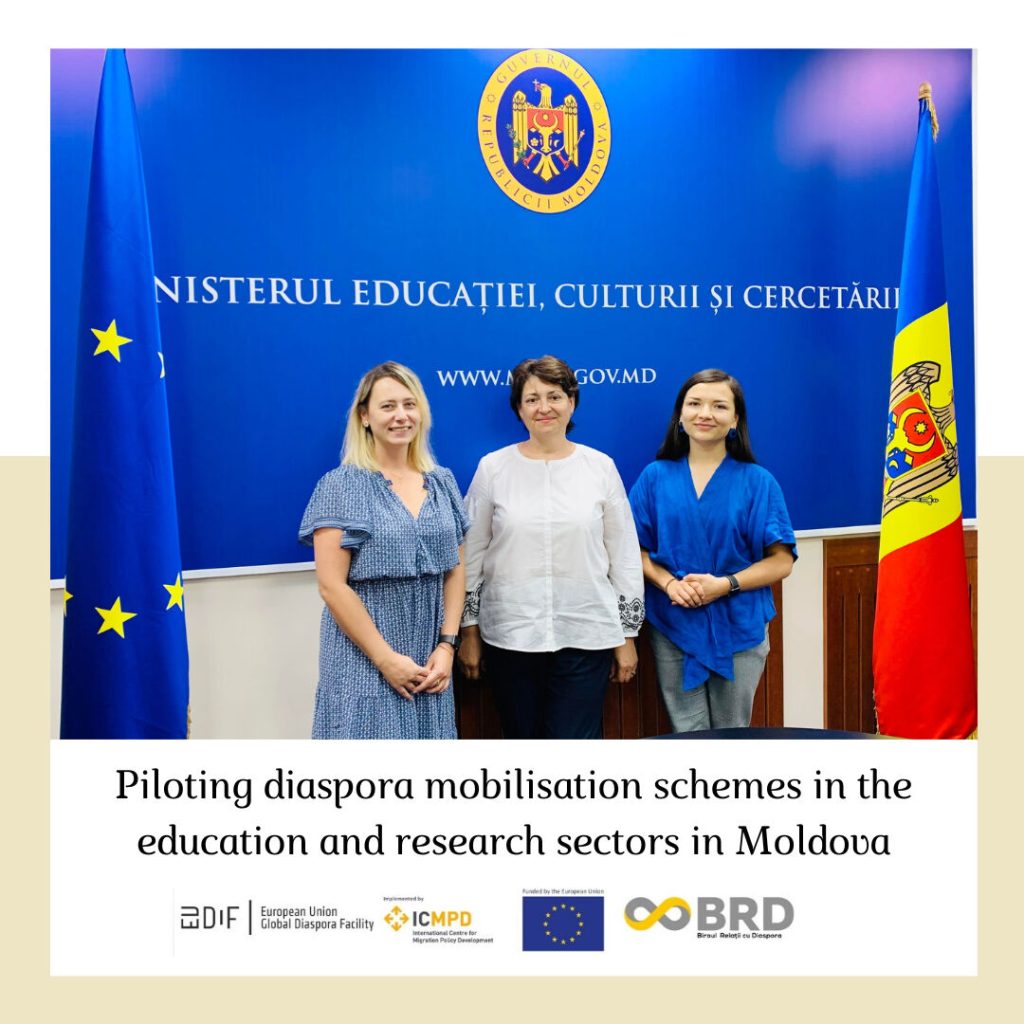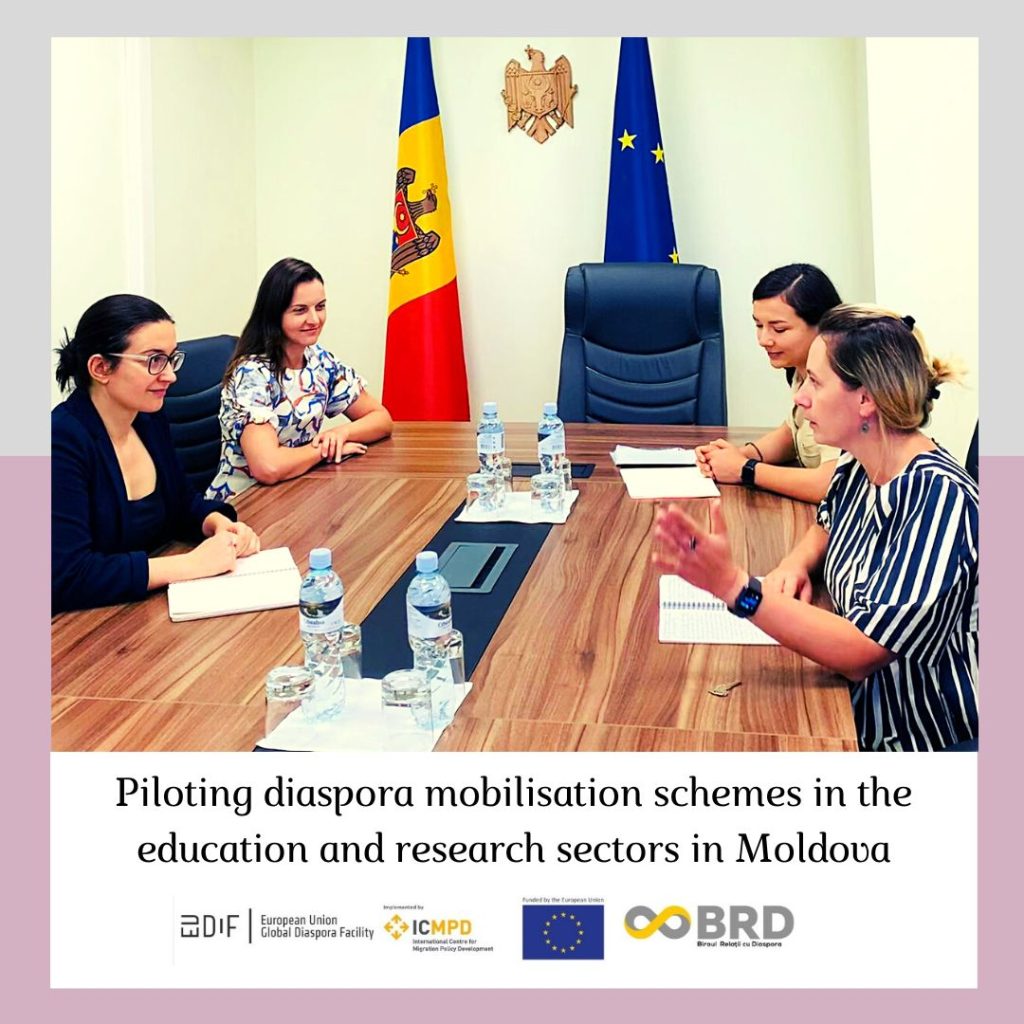
Piloting diaspora mobilisation schemes in the education & research sectors in Moldova
Experiencing high levels of emigration and “brain drain”, Moldova has made it a strategic priority to utilise the human potential of its diaspora in decision-making and developmental processes. Despite limited capacities and funding for extensive research and skills auditing, the government strives to further develop communication channels with the diaspora and to learn more about its potential for development. The Bureau for Relations with Diaspora (BRD) which is the government directorate in charge of diaspora policies, requested assistance from EUDiF and diaspora expertise to establish a thematic network of diaspora members working in education and research.
This action prepared the ground for BRD to conceptualise, prepare, and pilot a small-scale diaspora skills transfer scheme with a specific target group, the “academic diaspora”, a system that could later on be replicated in other sectors.

Programme of activities
The programme is structured around three phases, starting with an assessment of sectoral needs and academic diaspora profiling that lead to development of guidelines for creation of co-working hubs and piloting diaspora skills transfers in the education and research sectors.
EUDiF organised a fact-finding mission to Chisinau and deployed two diaspora experts to consult the stakeholders. The experts prepared the necessary tools for the assessment and looked into the need for institutional capacity building, but also into the capacity to absorb the knowledge transfer from diaspora.
The activity helped to identify relevant profiles in the Moldovan academic diaspora who can engage in knowledge transfers. This was done by collecting data (an online profiling survey) and conducting follow up interviews with selected diaspora members to assess their willingness and mobilisation capacity.
The EUDiF and diaspora experts examined different types of diaspora skills transfer schemes at global and regional levels, consolidating the findings from the assessment exercises and accumulating new perspectives and information from other actors.
The roadmap offers the background information, specific needs, resources, incentives, challenges, and contextualisation of a set of practical procedures and steps to put in place a co-working model in the education and research sectors.
Selected diaspora members were invited to three focus groups (10-12 participants each) in order to discuss the main results of the desk analysis, the capacity gap assessment and roadmap recommendations.
The Moldovan Bureau for Diaspora and EUDiF conducted focus group with representatives of all targeted institutions in the diaspora field. The event was aimed to exchange on the assessment findings and roadmap with a view to agreeing on the practical elements of a pilot scheme in diaspora skills transfer.
EUDiF co-organised an online workshop with BRD to validate the roadmap and prepare the piloting phase.
The Moldovan Bureau for Diaspora created and prepared the pilot co-working hub with the Moldovan academic diaspora with guidance from diaspora experts and roadmap recommendations.
EUDiF offered support to the Bureau in the the process of identifying concrete opportunities for diaspora transfer schemes with the created Diaspora co-working hub (DCH).
Jointly with BRD, the diaspora professionals gathered feedback and captured lessons learnt during the conceptualisation and piloting phases to highlight success factors and challenges for future replication.
Many diaspora members are knowledge migrants and for a country whose economy is struggling and one third of the population is abroad, its biggest resource become its people.”
